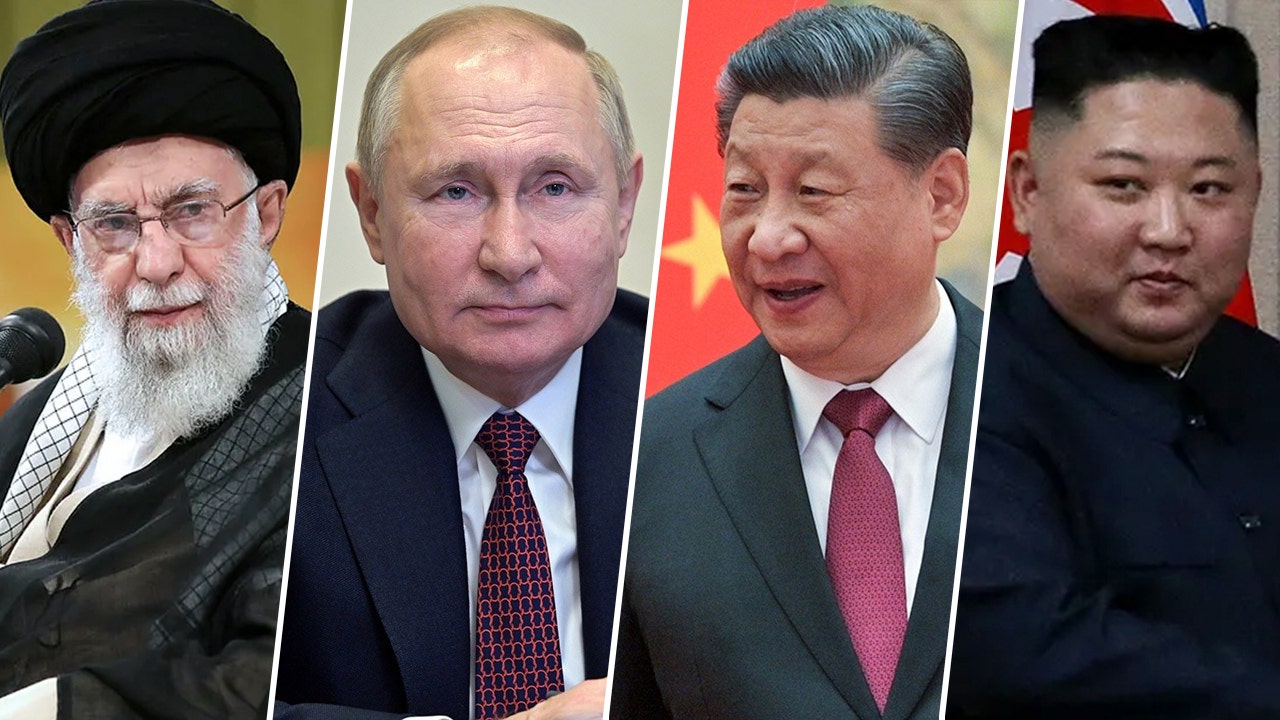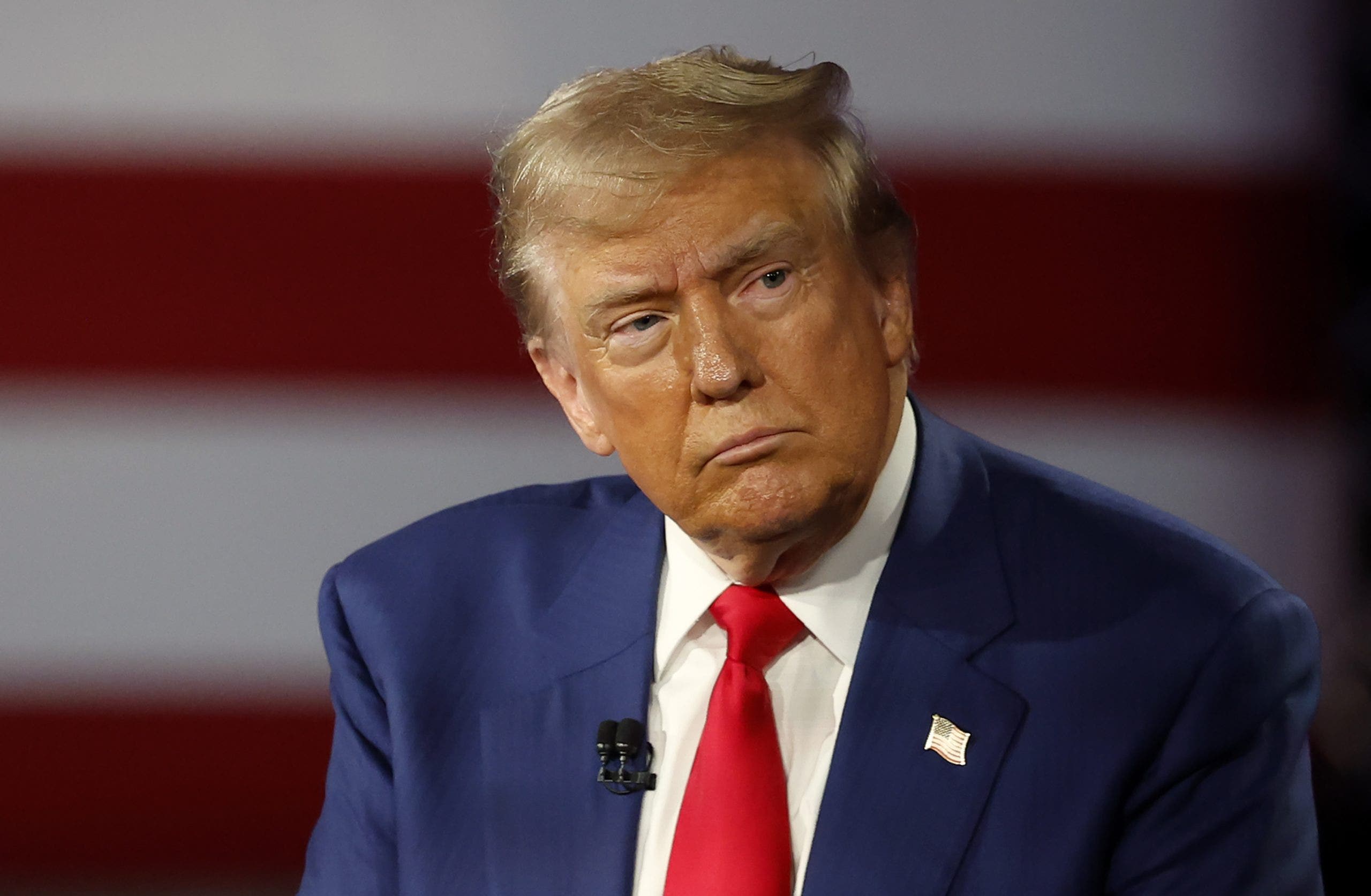The U.S. is “sleepwalking” into a global war against its top adversaries united under an axis of “malign partnerships,” and experts are sounding the alarm that neither the U.S. military nor the public are prepared for World War III.
In late July, a body of non-governmental national security experts, first tasked by Congress in 2022 under the Commission on the National Defense Strategy, released an evaluation of the U.S.’ overall security strategy put forward by the Biden administration two years ago.
The commission found that after decades of post-Cold War policies that cut defense spending and reduced investments in the security sector, Washington, D.C., is “not prepared” to counter Beijing in open conflict, let alone a multi-front war against China, Iran, North Korea and Russia.
Chinese and Russian warships take part in joint naval drills in the East China Sea, on Dec. 27, 2022. (Xu Wei/Xinhua via AP, File)
RUSSIA, CHINA HOLD BIGGEST WAR GAMES SINCE SOVIET ERA
The commission, which included four Republicans and four Democrats who served under the Clinton, George W. Bush and Obama administrations, looked to make clear the lack of preparedness was not the fault of a single administration, but rather the failure of a generation of leaders to identify and counter the growing danger posed by authoritarian nations, as well as to adequately explain the threat to the American public.
The experts explained the U.S. and its allies are facing a threat not seen from global powers since WWII, as Europe is witnessing the largest land war on the continent since 1945 – a war in which Russia is receiving aid from China, Iran and North Korea.
The threat of a major war between nation states, not just rogue militants or terrorist groups, looms in the Middle East, and the potential for open conflict in the Indo-Pacific also remains a serious concern.
“There’s been a generalized failure across our political class in educating the American public of the severity of these threats and the danger that they represent,” Amb. Eric Edelman, who served as vice-chair for the 2024 commission as well as co-chair or vice chair for prior commission reports, said during a briefing to reporters hosted by JINSA this week.
Chinese President Xi Jinping, right, and Russian President Vladimir Putin look toward each other as they shake hands prior to their talks in Beijing on Thursday, May 16, 2024. (Sergei Bobylev, Sputnik, Kremlin Pool Photo via AP, File)
“Historically, I’m sad to say, that when we’re faced with these kinds of challenges, we have typically responded after a catastrophe,” he added, referencing events like Pearl Harbor and 9/11. “Perhaps we can draw from some different lessons in history.”
The experts pointed to the decrease in defense spending – which has been in a downturn since 1952 when the U.S. allocated nearly 17% of its GDP for defense compared to the 3% allocated today – and warned this investment in security is not enough to adequately counter adversaries like China.
After reviewing unclassified war games, the commission found that even with Washington’s efforts to ramp up weapons stockpiles following Russia’s invasion of Ukraine, the U.S. would likely still exhaust its munitions inventories within three to four weeks if it were to engage in open conflict with Beijing.
TOP RUSSIAN OFFICIAL LANDS IN IRAN AMID US, UK CONCERNS OVER ALLEGED NUCLEAR DEAL
U.S. Army soldiers, from the 3rd Battalion, 321st Field Artillery Regiment of the 18th Field Artillery Brigade out of Fort Bragg North Carolina, conduct live fire testing of early versions of the Army Tactical Missile System at White Sands Missile Range, New Mexico, on Dec. 14, 2021. (John Hamilton/U.S. Army via AP, File)
Some munitions like anti-ship missiles are estimated to last only a few days, and once expended, it will take years to replace the munitions.
Edelman pointed out that this is not a justification for ceasing military aid to Ukraine and highlighted that a direct war against an adversary like China or Russia would be substantially more expensive, let alone a global conflict not seen since the 20th century.
Battalion 120 territorial defense takes part in training exercises near the Belarus border in Chernobyl, Ukraine, on March 16, 2024 as the war between Russia and Ukraine has been going on for the last two years. (Photo by Gian Marco Benedetto/Anadolu via Getty Images)
“Preparing ourselves for defense is essentially an effort to deter conflict,” Edelman said. “Whatever the cost of defense is going to be, it’s going to be paltry in comparison to what the cost of a war would be.”
Near the end of World War II, the U.S. allocated more than 40% of its GDP for its defense budget in 1943 and 1944, and the commission warned that modern wars, as seen in Afghanistan, Iraq and now Ukraine, are lengthy engagements.
“The United States must therefore ready its forces and its industrial base for the potential of protracted conflict,” the commission’s report said.
However, the experts also warned that preparing the U.S. for a global power struggle cannot be remedied by just throwing money into the defense budget, there also needs to be a “shift in culture.”
Mara Rudman, commissioner and former deputy assistant to the president for National Security Affairs during the Clinton and Obama administrations, pointed to steps China has been taking over the last several decades that have given it an edge over the U.S., including in its technology sectors and relationship building in Latin America, Africa and recently, the Middle East.
A view shows facilities under construction, which are owned by TALCO Gold Chinese-Tajik antimony and gold mining joint venture, at the Konchoch deposit in western Tajikistan Nov. 3, 2021. TALCO Gold, jointly owned by Tajikistan’s state metals firm TALCO and China’s Tibet Huayu Mining Co, plans to begin commercial production of antimony, a metal used in batteries and fire retardants, from the Konchoch deposits by October 2022. (REUTERS/Nazarali Pirnazarov)
“They spent the last 20 years building the Belt and Road Initiative, making sure that they control processing and mining for most of the critical minerals that we need for a range of different weapon systems we have, but also for our phones and for the kinds of cars we need to build, and for the batteries that we need to have across the board,” she told reporters this week. “That’s something we need to overcome.”
There has been an increasing push in Republican circles in the U.S. to move away from international involvement, contributing to a rise in isolationism that is similar to U.S. sentiments ahead of World War II, and experts are sounding the alarm that this needs to change if Americans do not want to find themselves embroiled in another global war.
REPUBLICANS DIVIDED ON RUSSIA’S SECURITY THREAT AS VANCE JOINS TRUMP PRESIDENTIAL TICKET
“It’s going to require leadership, and it’s going to require educating the American public,” Edelman, who served under the Bush administration, said.
The experts on the bipartisan commission were in agreement that the American people not only need to be better educated by their leadership but trusted that they can decide what is best for their nation when properly informed.
North Korean leader Kim Jong Un, right, meets with a delegation led by Secretary of the Security Council of Russia Sergei Shoigu on Sept. 14, 2024, just days before the Russian official traveled to Iran. (KCNA via REUTERS )
Both the Biden-Harris administration and the Trump campaign were briefed by experts on the results of the commission.
While the White House and Harris campaign have not publicly commented on the findings, the former president’s response to the report seemed to run counter to what the commission urged, as former President Donald Trump called it”stupid” during a rally in late August – prompting the experts to question whether Trump had been properly briefed by his campaign.
“I really think it’s impossible to read the report that they’ve delivered and not believe that we are as a nation…sleepwalking into a great and potentially historic catastrophe,” host of the event and JINSA’s Charles & Randi Wax senior fellow, John Hannah, said.”We are not on the brink of a national crisis – in many ways, we’re already deep into a crisis.
“And we do not have our Churchill at the moment,” Hannah, who also served during the Bush administration, added. “The commission on the National Defense Strategy has fulfilled its mission. Now we need everybody else to play their part around the country and in the halls of power in Washington.”
Caitlin McFall is a Reporter at Fox News Digital covering Politics, U.S. and World news.


